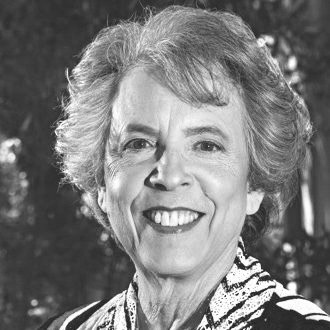Last week’s Torah portion ends with a genealogy, a long list of names of who begot whom and how long they lived. It is one of many genealogies in the Torah. It used to be that when I encountered those lists, I tuned out; I found them boring. But then I read a book by Thomas Cahill called “The Gifts of the Jews” (Anchor, 1999).
Cahill points out that the listing of individuals’ names is something that doesn’t occur in prebiblical literature. These genealogies, the listing of names, were the Hebrew Bible’s way of saying that every one of these persons was uniquely significant.
It is something that we take for granted —that each person is uniquely significant — but it is actually a radical notion. It is a notion, according to the non-Jewish writer Cahill, that begins with this week’s Torah portion, Lech Lecha, the beginning of our story as a people.
God calls to Avram: “Lech lecha: Go forth from your native land, your father’s house, to a land that I will show you. … And Abram took his wife, Sarai, and his brother’s son, Lot … and they set out for Canaan” (Genesis 12:1-5). This moment was the beginning of Jewish history.
Cahill argues that it is even more significant. He describes this moment as the beginning of history as we know it. Prior to this, people believed that life was a circle: We’re born, we die, and the next generation repeats the process. Life has no direction: It just keeps reiterating itself. Cahill explains that it is only with Abraham and the command of God that he “go forth” that the idea of history and progress is born. This insight is, for Cahill, a gift of the Jews.
If all is a circle, nothing we do matters, none of us matter, life does not matter. It will all happen again. What we do doesn’t matter. For our actions to matter, they must be able to influence the future. But the future cannot be influenced if everything happens over and over. If, on the other hand, the Jewish view is adopted, everything matters — every act I engage in matters, and therefore I matter — so much so that each one of us can change history by everything we do.
What are the results of this transformative idea? In Cahill’s words, “Most of our best words, in fact — new, adventure, surprise; unique individual, person, vocation; time, history, future; freedom, progress, spirit; faith, hope, justice — are the gifts of the Jews.”
Cahill asserts that “the Jews started it all and by ‘it’ I mean so many of the things we care about, the underlying values that make all of us — Jew and gentile, believer and atheist — tick. … The role of the Jews, the inventors of Western culture, is also singular … theirs is a unique vocation. Indeed … the very idea of vocation, of a personal destiny, is a Jewish idea.”
The gift of the Jews is the idea that individuals matter. Our lives can make a difference in the world.
This week is my father’s yahrzeit. As is the custom in our synagogue, we will read his name along with the names of other people from the congregation who died at this season in years past. We ask people to stand when the name of their family member is read and to tell us the relationship of the deceased. “My father,” I’ll say. Someone else will say “my mother.” Sometimes a whole family comes. “My father,” “my husband,” “my grandfather,” “my father-in-law,” “my brother,” “my uncle.” It is a powerful reminder that the person who is being remembered is more than just a name. Then we invite those people who have suffered a recent loss to stand and speak the name, and then all those people in the first year of mourning for a parent. They speak the names, and tell us who they were. We remember that each of these names was a person, like my father, who touched other people, whose life made other lives possible.
I don’t find those biblical genealogies boring anymore; instead, I think of them as another gift of the Jews.





















 More news and opinions than at a Shabbat dinner, right in your inbox.
More news and opinions than at a Shabbat dinner, right in your inbox.